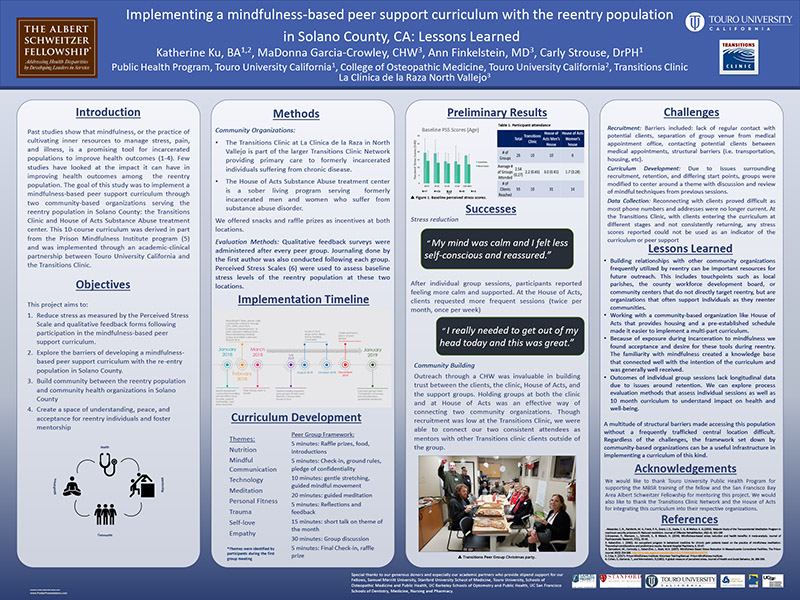
Hover to pan and click to magnify. Click again to pan at full screen.
Katherine Ku, BA, MaDonna Garcia-Crowley, CHW, Ann Finkelstein, MD, Carly Strouse, DrPH
Implementing a mindfulness-based peer support curriculum with the reentry population in Solano County, CA: Lessons Learned
Katherine Ku, BA, MaDonna Garcia-Crowley, CHW, Ann Finkelstein, MD, Carly Strouse, DrPH
Past studies show that mindfulness, or the practice of cultivating inner resources to manage stress, pain, and illness, is a promising tool for incarcerated populations to improve health outcomes (1-4). Few studies have looked at the impact it can have in improving health outcomes among the reentry population. The goal of this study was to implement a mindfulness-based peer support curriculum through two community-based organizations serving the reentry population in Solano County: the Transitions Clinic and House of Acts Substance Abuse treatment center. This 10-course curriculum was derived in part from the Prison Mindfulness Institute program (5) and was implemented through an academic-clinical partnership between Touro University California and the Transitions Clinic.

Present with Google Meet
Invite as many as 30 people, and present your poster in high definition. Transcription option is available. Free to use.
DISQUS COMMENTS WILL BE SHOWN ONLY WHEN YOUR SITE IS ONLINE